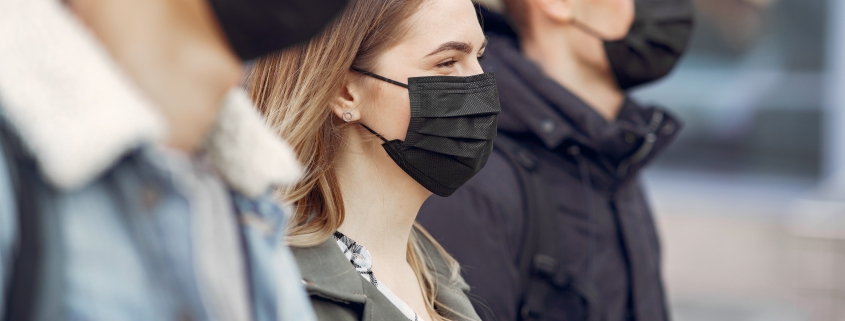Mandatory wearing of face coverings on public transport in England
Ahead of the official guidance being published, Department for Transport has provided CPT with the following information to help bus and coach operators in England prepare for the mandatory wearing of face coverings by public transport users from Monday 15 June.
**Please note that this is not official guidance and some of the information contained within this update may be subject to change**
Who will have to wear face-coverings?
Public transport users required to wear a face-covering if they can
- All passengers on buses, coaches*, domestic and international trains, trams, passenger ships/vessels and hovercraft, aircraft, and cable cars in England.
- DfT is working with the Devolved and Administrations and operators to test options on face coverings for cross-border and international services.
- The regulation will not apply to those in other spaces such as stations, seaports or airports, but operators may choose to ask their passengers to wear a covering in transport hubs where appropriate.
- The regulation will only apply to passengers, it will not apply to the workforce. The wearing of any protective clothing or PPE by the workforce is a matter for the operators to address following a risk assessment as part of their health and safety responsibilities. DfT will work with operators and other interested parties to ensure that face coverings are available to their staff.
Who is exempt?
Passengers with the following health and non-visible conditions are exempt
- Following an Equalities Impact Assessment, exemptions will apply to those with:
- Breathing difficulties and other respiratory conditions.
- Conditions affecting their dexterity, meaning they are not able to put on a face covering.
- Mental health conditions such as anxiety or panic disorders.
- Other non-visible disabilities such as autism.
- Cognitive impairments, including dementia, who may not understand or remember the need to wear a face covering.
- Visual impairments, with a restricted field of vision, particularly if any residual vision is at the lower edge of the normal field of view.
- Impairments which would make it difficult to put on or take off a face-covering safely, accurately, consistently or without pain.
- DfT also expects there to be reasonable judgement to ensure people can respond appropriately to avoid the risk of harm to themselves or others, and seek emergency medical assistance if required.
- The exemptions also apply to those who rely on lip-reading. This would include carers who are travelling with someone for whom a face covering will inhibit communication.
- You will also be able to remove your face covering for eating/drinking if necessary and taking essential medication.
- The regulation will not apply to children under 11 or children on dedicated school transport services.
- DfT expects everyone to wear a face-covering if they can. The above list of exemptions is not exhaustive and would extend to someone who has a justifiable reason for not wearing one on the grounds of health or disability not outlined above.
What about compliance?
Operators asked to remind passengers of the rules and regulations
- DfT hope that the travelling public will be happy to wear face coverings to help protect others, and therefore hope that there will be high levels of compliance with this new policy, reducing the need for enforcement.
- Operators have discretion over how their staff can enforce this regulation. DfT asks operators to remind passengers of the rules and deny access to services, or remove passengers from services, if they continue to fail to comply without legitimate exemption. The regulation will include specific powers for operators to do this.
- Where the above steps fail, the police and potentially other bodies will be provided with the power to fine a passenger if they continue to refuse to comply and/or become anti-social. The exact fine level will be in line with the existing Coronavirus restrictions.
- DfT is working through whether transport operators and unions would be content for their staff to have fining powers, or if it will only be the police with those powers. DfT welcomes views on this.
What is a face covering?
Passengers urged to make or buy their own face covering
- A face covering is a cloth covering that covers the wearer’s nose and mouth which can be made at home. You can find out how to make one here.
- You should not use medical grade PPE as this needs to be reserved for health and care workers, people should make or buy their own. However, someone wearing PPE would be compliant with the regulation.






